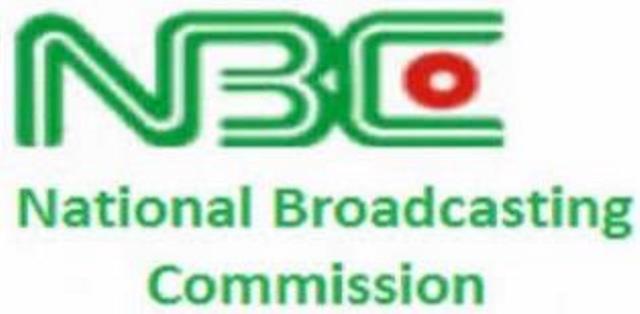Broadcasting
IBAN Asks NBC to Suspend Controversial Broadcasting Code

Independent Broadcasters Association of Nigeria (IBAN) has asked the National Broadcasting Commission (NBC) to suspend the implementation of the amended 6th broadcasting code.

Guy Murray-Bruce, the association’s secretary, in a statement, said the amendment should be subjected to a new round of wide stakeholder consultation to avoid a legal crisis.
He said the committee in charge of the amendment did not circulate a draft of its work to stakeholder groups before its ratification.
“We at The Independent Broadcasters Association of Nigeria (IBAN) wish to make a few observations which will touch on issues of stakeholder consultations, the committee’s terms of reference vis a vis its outcome and the practicality of the amendments as enunciated,” he said.
“First of all as a vital organ of the broadcasting value chain we feel that we deserved a seat on the committee. Granted that IBAN is a part of BON, we still needed to be represented on the committee in our capacity as private sector investors in broadcasting.
“We believe that the fact that as a body the committee didn’t deem it fit to avail us with a draft of its findings before formalizing its ratification with Mr. President’s approval is somewhat demeaning. We also find that the presumably inadvertent timing of the release of the amendments in the midst of the COVID-19 pandemic fears may have hampered our ability as a group to internally consult and express our views.
“We strongly feel that a draft of the committee’s work ought to have been circulated to stakeholder groups before its ratification. On the issue of the committee’s terms of reference, we find that the amendments do not reflect the core issues highlighted by the minister in his terms of reference which in the main centered on licensing of Web TV, recruitment of monitoring staff and allied issues.
“We all the same have reservations as to the practicality of implementing the amendments in their present form. We have observed what we believe could be areas of possible conflict with other government agencies due to overlapping mandates. We most humbly submit that the NBC hold off on the implementation of the amendments at this time. Indeed we recommend that a new round of wide stakeholder consultation be embarked upon.”
A call for position papers on the amendments to the broadcasting code by the board of the NBC had led to a controversy.
Armstrong Idachaba, acting director-general of the NBC, issued a statement disowning the call for position papers on the amendments.
Ikra Bilbis, chairman of the commission’s board, had in a notice called for the papers on the amendments over concerns he said were raised by stakeholders.
Broadcasting
Eedris Abdulkareem Teases New Protest Anthem following NBC Ban

Eedris Abdulkareem, veteran hip hop artiste, is showing no signs of backing down as he hints at releasing another protest song, shortly after his last track was banned by the National Broadcasting Commission (NBC).

Eedris Abdulkareem, veteran hip hop artiste
He recently again stirred the political waters as he hinted at the release of a new protest song, only weeks after his controversial track Tell Your Papa was banned by the National Broadcasting Commission.
The outspoken musician took to social media on Wednesday, April 16, 2025, to share an animated cover design with the words “3 Arms of Government,” suggesting the theme of his upcoming release.
Though the title remains undisclosed, the post was captioned simply with “Stay tuned,” fueling speculation that another hard-hitting social commentary is on the way.
Abdulkareem, known for his unapologetic political views, recently described the NBC’s decision to ban Tell Your Papa as hypocritical. Undeterred by censorship, he appears set to continue using music as a platform to criticize injustice and demand accountability.
The rapper also recently reaffirmed the relevance of his classic hit Jaga Jaga, stating that it would remain the country’s “second unofficial national anthem” until key issues like security, electricity, and governance are addressed.
With another protest song on the horizon, fans and critics alike are bracing for what may be Eedris Abdulkareem’s most direct political message yet.
Broadcasting
MultiChoice Brings Easter Home with Dedicated Pop-Up Channel

In celebration of the Easter season, MultiChoice has announced the launch of a dedicated Easter Pop-Up Channel, offering DStv and GOtv subscribers across Nigeria the chance to experience live broadcasts of key Easter events and services from the Catholic Archdiocese of Lagos.

The special channel, which runs from Thursday, April 17 to Monday, April 21, will be available on DStv channel 196 and GOtv channel 28, bringing the significance and beauty of Easter directly into viewers’ homes.
Throughout the Easter period, the channel will broadcast a rich lineup of live religious events. The programming begins on Thursday, April 17, with the Chrism Mass in the morning, followed by the Mass of the Last Supper in the evening.
On Good Friday, April 18, viewers can join in the Good Friday Tenebrae and the Seven Last Words service, followed by the Stations of the Cross from St. Gregory’s, and later the Passion Service.
The spiritual journey continues on Saturday, April 19, with the Easter Vigil Mass late in the evening, leading into the Easter Sunday Mass on April 20. The channel’s special programming concludes on Monday, April 21, with the Easter Monday Mass from Galilee.
This dedicated pop-up channel is designed for those who may be unable to attend church services in person, as well as for anyone seeking to deepen their spiritual observance during the Easter holidays. By broadcasting these significant events, MultiChoice reaffirms its commitment to providing content that resonates with the cultural and religious values of its viewers.
Subscribers are encouraged to tune in to DStv channel 196 and GOtv channel 28 throughout the Easter period to take part in these important religious celebrations from the comfort of their homes.
Broadcasting
Maximise Your Easter Getaway in Nigeria with Smart Travel Hacks

Easter is almost here, and with it comes the perfect opportunity to escape the everyday hustle and embark on a memorable adventure. Whether you’re craving some ‘chilling’ time, quality ‘family’ time, or a ‘pepper dem’ getaway, Nigeria offers endless possibilities for exploration. And the best part? Travelling locally has never been easier or more affordable.

Whether you’re a ‘newbie’ traveller or a seasoned pro, we’ve got you covered with essential hacks that will make your trip a breeze. Say goodbye to stress and hello to smooth sailing as you navigate your Easter getaway like a true travel expert.
Planning your trip is like packing your suitcase – essential, not optional
Just like you wouldn’t leave home without your power-bank (just in case!), don’t head off on a quick trip without a plan. A little prep can save you time, money, and stress — from booking flights and sorting transport, to packing light and right.
Nigeria has endless ways to travel. Flying with local airlines like Air Peace or Ibom Air is quick and budget-friendly, while renting a car gives you the freedom to explore scenic routes like the drive to Erin-Ijesha Waterfalls or the journey to Obudu Cattle Ranch. Not into driving? Buses like Peace Mass or God is Good are easy and affordable. And for a truly luxurious experience, you could even consider a chartered flight – if you’re balling!
Travel like a pro: The art of smart packing
Packing smartly is a crucial travel hack that can save both time and money. Amelia Campher recently shared on TikTok how she organised her hair, beauty, makeup, and personal accessories into different vanity cases and toiletry bags from Temu. Each one perfectly stores her daily essentials, keeping everything neat and accessible. She excitedly told her followers, “This is your sign to buy these bags!” Her clever packing strategy ensures that she’s ready for any trip without unnecessary clutter or stress.
Take Jasmin’s experience, for example. After getting hit with extra carry-on fees on a previous flight, she decided to be smarter about her upcoming family trip. In her search for a solution, she found the perfect backpack on Temu for just under ₦40k. Ticking all the boxes, it avoided extra carry-on fees and allowed her to efficiently pack 16 items plus a makeup bag. When they arrived at the airport, Jasmin’s family breezed through check-in with no issues, their backpacks meeting size requirements perfectly. No extra charges, no stress; just a smooth start to their unforgettable five-day family trip.
Backpacks aren’t just ideal for air travel – they’re also perfect for road trips. Whether you’re cramming your car with family and their belongings or flying high, packing smart and light is essential. A compact, well-organised backpack can make your journey easier, no matter the mode of transport.
To avoid unexpected charges when flying within Nigeria this Easter, it’s crucial to familiarise yourself with airline baggage policies; while Economy Class typically permits 15kg to 20kg of checked luggage, and Premium Economy or Business Class allows up to 30kg, always verify specific weight limits with your chosen airline to prevent costly excess baggage fees, especially if you plan on packing more than the standard allowance.
No passport needed: Pack your bags for a Naija Detty Easter
Why travel halfway across the world when Nigeria has it all? This Easter, skip the long-haul and discover the treasures on your doorstep. From the buzzing streets of Lagos to the ancient city of Benin and the serene hills of Jos, unforgettable adventures are just a short trip away.
By travelling locally, you’re not only creating new memories — you’re also supporting local tourism and helping grow our economy. With so many destinations to explore, there’s something for every kind of traveller. So pack your bags, plan smartly, and make this Easter your best Naija Detty holiday yet.

 Telecom1 day ago
Telecom1 day agoMTN Nigeria Takes Broadband Services to the Next Level with FibreX Launch

 News1 day ago
News1 day agoSERAP Files Lawsuit Against NBC Over Ban on Eedris Abdulkareem’s Protest Song Tell Your Papa

 E-Financial1 day ago
E-Financial1 day agoFCMB Group Redefines Corporate Storytelling with The Power Of The Group TVC

 General News4 hours ago
General News4 hours agoEFCC Clarifies SCUML Certificate Misuse Amid CBEX Ponzi Scheme Scandal

 E-Financial4 hours ago
E-Financial4 hours agoCBN, NGX Group Defend Economic Reforms at Nasdaq

 Telecom4 hours ago
Telecom4 hours agoDigital Transformation Remains Africa’s Gateway to Economic Advancement – Adumike

 Telecom4 hours ago
Telecom4 hours agoPAFON 2.0: Experts Discuss Pathways to Boost Financial Inclusion in Nigeria

 E-Business4 hours ago
E-Business4 hours agoGold Hits Record High Amid U.S. Dollar Weakness and Trade Tensions





















